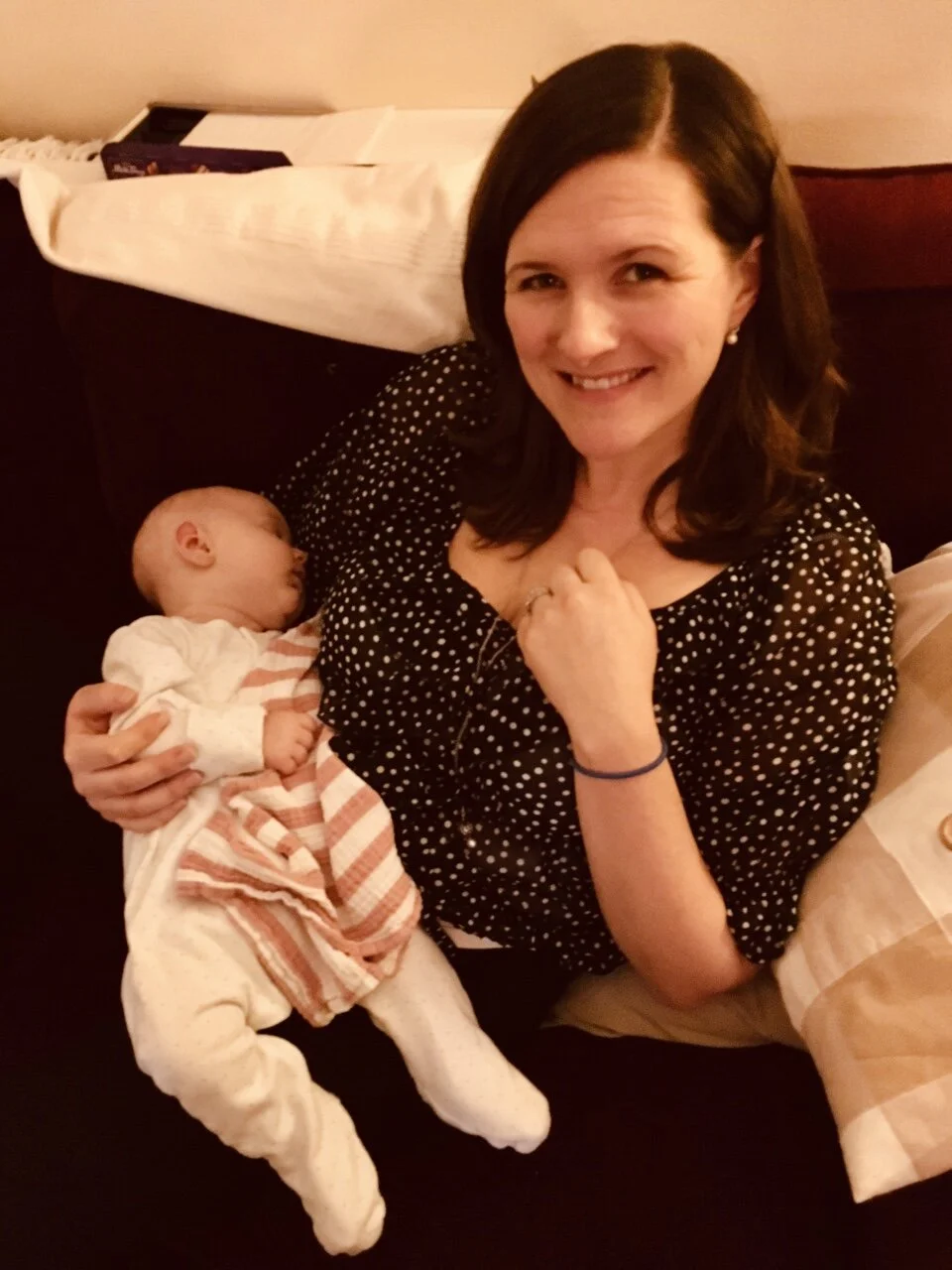Supporting Choices in Infant Feeding
The sadness behind the smile- a journey cut short.
Infant feeding journeys for mothers is a subject very close to my heart, and I work to ensure mothers are supported in their decisions around feeding- whether it be breastfeeding, bottle feeding or a combination of the two. And although the media is great at now promoting and normalising breastfeeding, sadly many of our HCPs are yet to get themselves up to speed and able to support mothers with these choices.
So why do I care so much about this? I suspect it is linked to the journey I had with my second child, where an ill-informed GP and Health Visitor did not successfully recognise, treat and support me and my infant well enough through an episode of oral and breast thrush. My breastfeeding journey was cut short, and my precious eight week old baby developed lactose intolerance from the drugs prescribed.
The anger I felt from having been badly advised, and not having my usual level of confidence to research the situation myself (partly due to the fog of the early baby days, as much as a lack of logical thinking to enable me to put together information I already knew about gut flora and medicines) , stayed with me for years. It took me until my middle son was 3 to finally let go of the guilt that I felt over what happened next.
Medication led to severe gastro issues and colic type symptoms for my son which took about four days for me to make the link back to the medication I was taking and passing across in my breast milk. By then the damage had been done. He had green frothy poop and wasn’t gaining weight as expected. So I was advised to put him onto a special formula. No mention of how to perhaps use other products to help him digest my breastmilk such as colief drops. No mention of pump and dump for a few weeks to keep my supply up. No discussions around reintroducing the breast (and no understanding from me that I would be able to ‘re-lactate’ successfully having breastfed for 7 months with my previous child). That was it. This breastfeeding journey was deemed to be over, despite that not being what was best for me or my baby long term.
The lactose free formula prescribed turned my gorgeous happy baby into a fractious and unsettled little chap who then proceeded to wake on the hour, every hour for 35 days straight. It nearly broke me as a parent, and I made some choices in that time that were driven by exhaustion and frustration. Choices I regret and feel I would have made differently had I not felt so far from the advice and support I needed.
So when i trained in antenatal breastfeeding education with a wonderful Lactation Consultant, I couldn’t hold back the tears when I discovered that I could have continued to breastfeed despite the set back. That there was another way, but that it just needed some better education of those healthcare professionals who are the first line care of new mothers (after midwife discharge at 2 weeks postpartum). I needed some signposting to an IBCLC, or even a breastfeeding counselor or an online support group. Damn-it, even La Leche League website or a phone call to the National Breastfeeding Helpline or The Association of Breastfeeding Mothers would have given me better information and support than I received!
But you don;t know what you don’t know do you?
The above sentiment applies to me as well as the healthcare team I went to for help.
Do I blame them? No.
Have I stopped blaming myself after all this time? Just about.
What can I do about it now? Well I can make sure that as many women that I support antenatally are able to use the information I give them to seek different advice, to reach out for help and support from more knowledgeable sources and so are able to navigate their journeys with specialist help and support when they are faced with these (very common) obstacles. My hope through my teaching, as well as the (soon to be) Me And My Baby Directory is to bring together local information of IBCLCs, educators, support groups and helplines for families so they are armed and ready if they need help.
Knowledge is power in the world of breastfeeding. And if you can understand how your body works to make milk, the feedback loops involved, positioning and attachment, how to successfully express, how to combine breast and bottle feeding and where to turn to for practical help and up to date information around breastfeeding, then you are more likely to find your way through challenges and maintain a breastfeeding relationship with you baby (if you want to).
I think so many women loose their breastfeeding relationship too early due to barriers and challenges, when they are not properly supported. Only afterwards do they reflect back and realise that they would have liked to have breastfeed longer. And the emotional feelings that come with that are very real. They linger.
So as I give my middle son that extra cuddle, that more lenient parenting choice, the fist pick out of the biscuit tin over his brothers sometimes, I know that the guilt still hasn’t really gone. I wasn’t able to give him the same as my other two children in those early weeks, and although he is fit and well and none the wiser- I will always feel we lost something.
